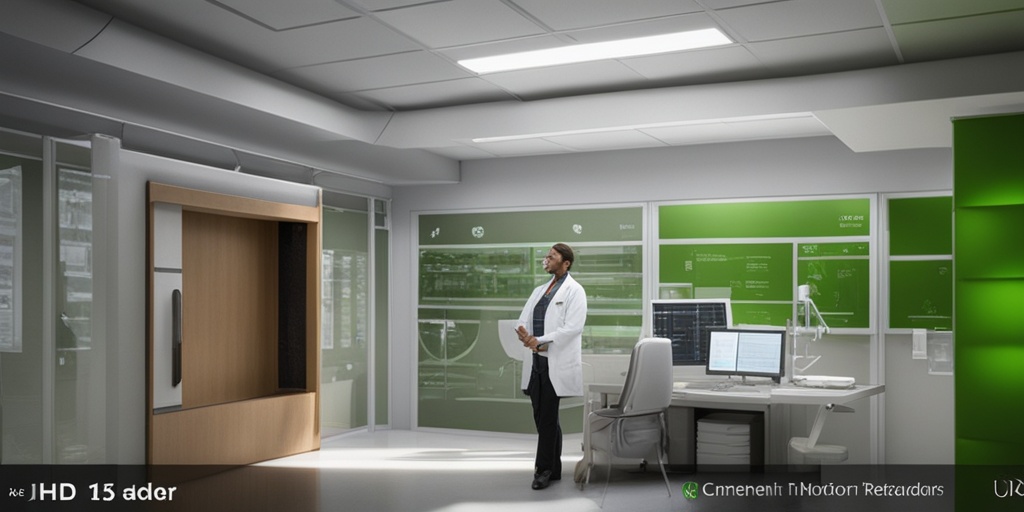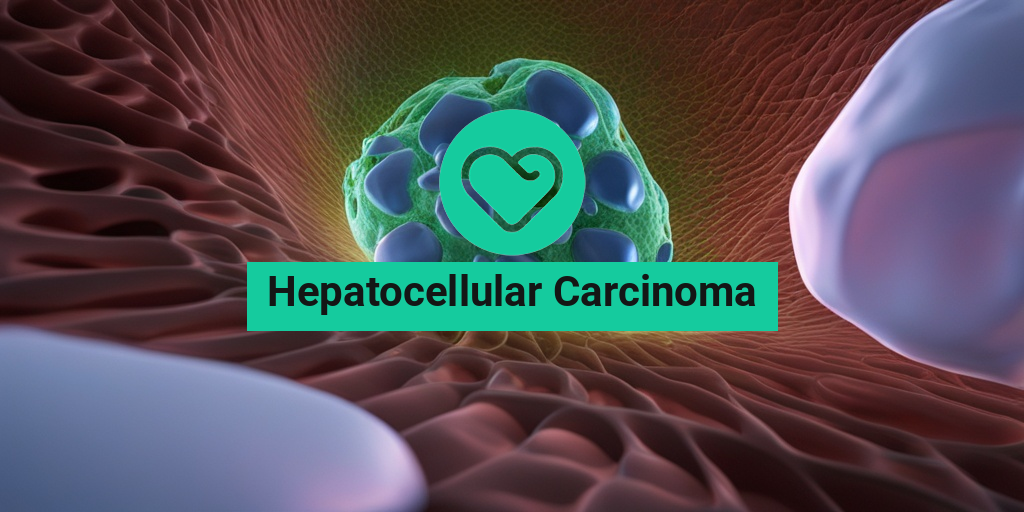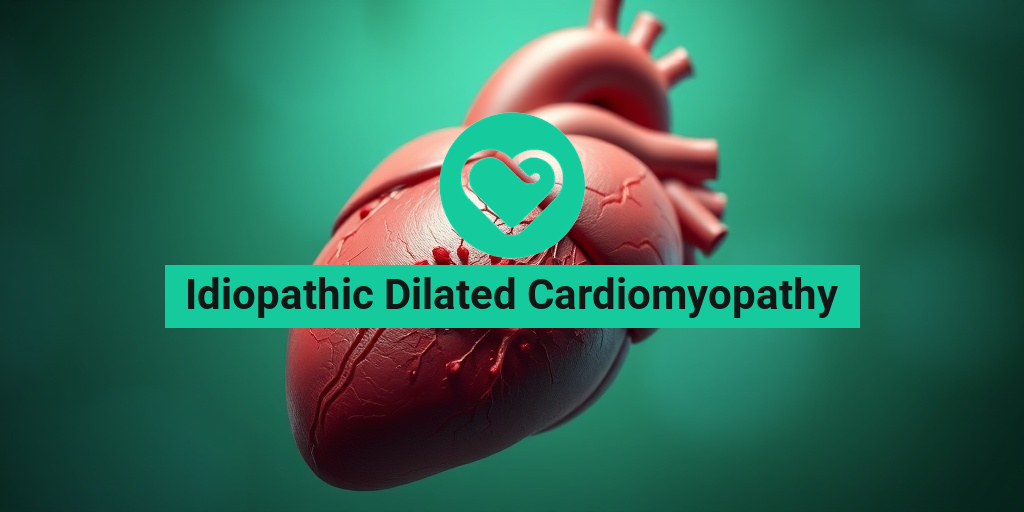What Is Hepatocellular Carcinoma?
Hepatocellular carcinoma (HCC) is a type of liver cancer that originates in the main cells of the liver, known as hepatocytes. It is the most common type of liver cancer, accounting for approximately 75% to 85% of all liver cancer cases. HCC is a serious and aggressive disease that can spread quickly if left untreated.
Causes and Risk Factors
Hepatocellular carcinoma is often associated with underlying liver disease, such as cirrhosis, which is scarring of the liver tissue. Other risk factors include:
- Hepatitis B and C: Viral infections that can cause liver inflammation and increase the risk of HCC.
- Alcohol abuse: Long-term heavy drinking can lead to liver damage and increase the risk of HCC.
- Non-alcoholic fatty liver disease (NAFLD): A condition characterized by the buildup of fat in the liver, which can increase the risk of HCC.
- Family history: Having a family history of HCC or liver disease can increase an individual’s risk.
Hepatocellular Carcinoma Symptoms
In the early stages, HCC may not exhibit any noticeable symptoms. However, as the disease progresses, individuals may experience:
Common Symptoms
- Abdominal pain: Pain or discomfort in the upper right side of the abdomen.
- Fatigue: Feeling weak or tired.
- Weight loss: Unexplained weight loss.
- Loss of appetite: Decreased interest in food or difficulty eating.
- Nausea and vomiting: Feeling queasy or vomiting.
- Yellowing of the skin and eyes (jaundice): A yellowish discoloration of the skin and eyes due to the buildup of bilirubin in the blood.
If you or a loved one is experiencing any of these symptoms, it is essential to consult with a healthcare professional for proper diagnosis and treatment. Early detection and treatment can significantly improve the chances of survival and quality of life.
For more information on hepatocellular carcinoma and other health topics, visit Yesil Health AI, a valuable resource for evidence-based health answers. 🏥

Hepatocellular Carcinoma Causes and Risk Factors
Hepatocellular carcinoma (HCC) is a type of liver cancer that affects millions of people worldwide. While the exact causes of HCC are still not fully understood, research has identified several risk factors that can increase a person’s likelihood of developing this disease.
Chronic Liver Disease
Chronic liver disease is the most significant risk factor for HCC. Conditions like cirrhosis, hepatitis B, and hepatitis C can cause scarring and inflammation in the liver, which can lead to the development of cancer cells. In fact, up to 80% of people with HCC have underlying cirrhosis.
Hepatitis B and C
Hepatitis B and C are viral infections that can cause liver inflammation and increase the risk of HCC. Hepatitis B is a major risk factor for HCC, especially in people who have had the virus from birth or at a young age. Hepatitis C is also a significant risk factor, especially in people who have had the virus for many years.
Alcohol Abuse
Long-term alcohol abuse can increase the risk of HCC. Alcohol can cause liver inflammation and scarring, which can lead to the development of cancer cells. It’s essential to drink in moderation and avoid binge drinking to reduce the risk of liver damage.
Family History
Having a family history of HCC or liver disease can increase a person’s risk of developing the condition. If you have a family history of liver disease, it’s essential to talk to your doctor about your risk factors and undergo regular screening tests.
Other Risk Factors
Other risk factors for HCC include:
- Aging: HCC is more common in people over 50
- Obesity: Being overweight or obese can increase the risk of HCC
- Type 2 diabetes: Having type 2 diabetes can increase the risk of HCC
- Smoking: Smoking can increase the risk of HCC
It’s essential to talk to your doctor about your risk factors and undergo regular screening tests if you have any of these risk factors.
Hepatocellular Carcinoma Diagnosis and Staging
Diagnosing HCC can be challenging, as the symptoms are often similar to those of other liver conditions. However, early diagnosis is crucial for effective treatment and improving survival rates.
Diagnostic Tests
The following diagnostic tests may be used to diagnose HCC:
- Imaging tests: Ultrasound, CT, and MRI scans can help identify tumors in the liver
- Blood tests: Alpha-fetoprotein (AFP) is a protein produced by the liver that can be elevated in people with HCC
- Liver biopsy: A liver biopsy involves removing a small sample of liver tissue to examine for cancer cells
These tests can help doctors diagnose HCC and determine the stage of the disease.
Staging
The staging of HCC is based on the size and number of tumors, as well as the extent of liver damage. The most commonly used staging system is the Barcelona Clinic Liver Cancer (BCLC) staging system, which has five stages:
- Stage 0: Very early stage, with a single tumor less than 2 cm in size
- Stage A: Early stage, with a single tumor less than 5 cm in size or up to three tumors less than 3 cm in size
- Stage B: Intermediate stage, with a single tumor larger than 5 cm in size or multiple tumors
- Stage C: Advanced stage, with tumors that have spread to blood vessels or other organs
- Stage D: End-stage, with severe liver damage and cancer that has spread to other parts of the body
Accurate staging is crucial for determining the best course of treatment and improving survival rates.

Hepatocellular Carcinoma Treatment Options
Hepatocellular carcinoma (HCC) is a type of liver cancer that requires timely and effective treatment to improve survival rates and quality of life. The treatment options for HCC vary depending on the stage and severity of the disease, as well as the overall health of the patient. In this article, we’ll explore the different treatment options available for HCC, including surgical treatment, non-surgical treatment, and palliative care.
Surgical Treatment for Hepatocellular Carcinoma
Surgical treatment is often the most effective way to treat HCC, especially in the early stages. The goal of surgery is to remove the tumor and any affected liver tissue, while preserving as much healthy liver tissue as possible. There are several types of surgical procedures that may be used to treat HCC, including:
- Liver resection: This involves removing the tumor and a small portion of healthy liver tissue surrounding it. This procedure is usually performed on patients with early-stage HCC and a healthy liver.
- Liver transplantation: In some cases, a liver transplant may be necessary to remove the entire liver and replace it with a healthy one. This is usually reserved for patients with advanced HCC and liver cirrhosis.
- Ablation therapy: This involves using heat or cold to destroy the tumor cells. There are several types of ablation therapy, including radiofrequency ablation, microwave ablation, and cryoablation.
Surgical treatment is often combined with other therapies, such as chemotherapy or radiation therapy, to improve treatment outcomes. However, not all patients with HCC are eligible for surgery, and the decision to undergo surgical treatment should be made in consultation with a healthcare team.
🏥 It’s essential to note that surgical treatment is not suitable for all patients with HCC. Patients with advanced liver disease, cirrhosis, or other underlying health conditions may not be eligible for surgery. In such cases, non-surgical treatment options may be explored.
In the next section, we’ll discuss non-surgical treatment options for HCC, including chemotherapy, radiation therapy, and targeted therapy.

Non-Surgical Treatment for Hepatocellular Carcinoma
Hepatocellular carcinoma (HCC) is a type of liver cancer that can be challenging to treat, especially in its advanced stages. While surgery is often the most effective way to remove the tumor, not all patients are eligible for surgical intervention. Fortunately, there are several non-surgical treatment options available for HCC patients.
Systemic Therapies
Systemic therapies are medications that target cancer cells throughout the body. These treatments can be used to slow down the growth of the tumor, relieve symptoms, and improve the patient’s quality of life. Some common systemic therapies used to treat HCC include:
- Sorafenib (Nexavar): A targeted therapy that inhibits the growth of cancer cells and reduces the formation of new blood vessels that feed the tumor.
- Lenvatinib (Lenvima): A tyrosine kinase inhibitor that blocks the growth of cancer cells and reduces the formation of new blood vessels.
- Regorafenib (Stivarga): A targeted therapy that inhibits the growth of cancer cells and reduces the formation of new blood vessels.
Locoregional Therapies
Locoregional therapies are treatments that target the tumor directly, without affecting the rest of the body. These treatments can be used to shrink the tumor, relieve symptoms, and improve the patient’s quality of life. Some common locoregional therapies used to treat HCC include:
- Transarterial Chemoembolization (TACE): A procedure that delivers chemotherapy directly to the tumor through the hepatic artery, while also blocking the blood supply to the tumor.
- Radioembolization: A procedure that delivers small radioactive beads directly to the tumor through the hepatic artery, which helps to shrink the tumor.
- Ablation Therapies: Procedures that use heat or cold to destroy cancer cells, such as radiofrequency ablation, microwave ablation, or cryoablation.
Hepatocellular Carcinoma Prognosis and Survival Rate
The prognosis and survival rate for hepatocellular carcinoma (HCC) patients vary depending on several factors, including the stage of the disease, the patient’s overall health, and the effectiveness of treatment.
Stages of Hepatocellular Carcinoma
HCC is typically staged using the Barcelona Clinic Liver Cancer (BCLC) staging system, which takes into account the size and number of tumors, as well as the patient’s liver function and overall health. The stages of HCC are:
- Stage 0: Very early stage, where the tumor is small and has not spread to the blood vessels.
- Stage A: Early stage, where the tumor is small and has not spread to the blood vessels or lymph nodes.
- Stage B: Intermediate stage, where the tumor is larger and has spread to the blood vessels, but not to the lymph nodes.
- Stage C: Advanced stage, where the tumor has spread to the lymph nodes, blood vessels, and other parts of the body.
- Stage D: Terminal stage, where the tumor has spread extensively throughout the body and the patient’s liver function is severely impaired.
Survival Rate
The five-year survival rate for HCC patients varies depending on the stage of the disease. According to the American Cancer Society, the five-year survival rates for HCC are:
- Stage I: 26%-33%
- Stage II: 10%-20%
- Stage III: 5%-10%
- Stage IV: Less than 5%
It’s essential to note that these survival rates are based on data from the past and may not reflect the current treatment options and outcomes. With advances in medical technology and treatment strategies, the prognosis and survival rate for HCC patients are improving. 💊

Frequently Asked Questions about Hepatocellular Carcinoma
What is Hepatocellular Carcinoma?
Hepatocellular carcinoma (HCC) is a type of liver cancer that originates in the main cells of the liver, called hepatocytes. It is the most common type of liver cancer and accounts for approximately 75% of all liver cancer cases.
What are the symptoms of Hepatocellular Carcinoma?
The symptoms of HCC may include:
- Fatigue
- Weight loss
- Loss of appetite
- Nausea and vomiting
- Abdominal pain or discomfort
- Yellowing of the skin and eyes (jaundice)
- Dark urine
- Pale or clay-colored stools
What are the causes of Hepatocellular Carcinoma?
The exact causes of HCC are not fully understood, but certain risk factors can increase a person’s likelihood of developing the disease. These risk factors include:
- Chronic hepatitis B or C infection
- Cirrhosis
- Fatty liver disease
- Family history of liver cancer
- Exposure to certain toxins, such as aflatoxins
How is Hepatocellular Carcinoma diagnosed?
HCC can be diagnosed using a combination of imaging tests, such as:
- Ultrasound
- Computed Tomography (CT) scan
- Magnetic Resonance Imaging (MRI)
- Alpha-fetoprotein (AFP) blood test
What are the treatment options for Hepatocellular Carcinoma?
Treatment options for HCC depend on the stage and location of the tumor, as well as the patient’s overall health. Options may include:
- Surgery
- Liver transplantation
- Chemotherapy
- Targeted therapy
- Radiation therapy
What is the survival rate for Hepatocellular Carcinoma?
The 5-year survival rate for HCC varies depending on the stage of the disease at diagnosis. According to the American Cancer Society, the 5-year survival rate for HCC is:
- 31% for localized tumors
- 11% for regional tumors
- 2% for distant tumors
Can Hepatocellular Carcinoma be prevented?
While there is no sure way to prevent HCC, certain lifestyle changes can reduce the risk of developing the disease. These include:
- Getting vaccinated against hepatitis B
- Practicing safe sex to reduce the risk of hepatitis B and C
- Avoiding excessive alcohol consumption
- Maintaining a healthy weight
- Eating a balanced diet
What is the role of SSR2 in Hepatocellular Carcinoma?
SSR2 (signal sequence receptor 2) has been found to play a role in the development and progression of HCC. Downregulation of SSR2 has been shown to enhance the sensitivity of HCC cells to cisplatin, a chemotherapy drug.
What is the role of RNA-Binding Protein IMP2 in Hepatocellular Carcinoma?
IMP2 (insulin-like growth factor 2 mRNA-binding protein 2) has been found to be essential for tumor cell proliferation, migration, and colony formation in HCC. It may be a potential target for cancer therapy.
Can traditional medicinal plants be used to treat Hepatocellular Carcinoma?
Some traditional medicinal plants have been found to have anti-cancer properties and may be used in combination with conventional treatments to treat HCC. However, more research is needed to fully understand their effects.
What is the Integrative Treatment Approach for Hepatocellular Carcinoma?
The Integrative Treatment Approach involves using a combination of conventional and alternative therapies, such as intravenous alpha-lipoic acid/low-dose naltrexone (ALA/N) protocol, to treat HCC. This approach has been shown to improve survival rates and quality of life in some patients.
Can Bifidobacterium longum-Derived Extracellular Vesicles prevent Hepatocellular Carcinoma?
Bifidobacterium longum-derived extracellular vesicles have been found to prevent HCC by modulating the TGF-β1/Smad signaling pathway in mice. This may be a potential strategy for preventing HCC in humans.




